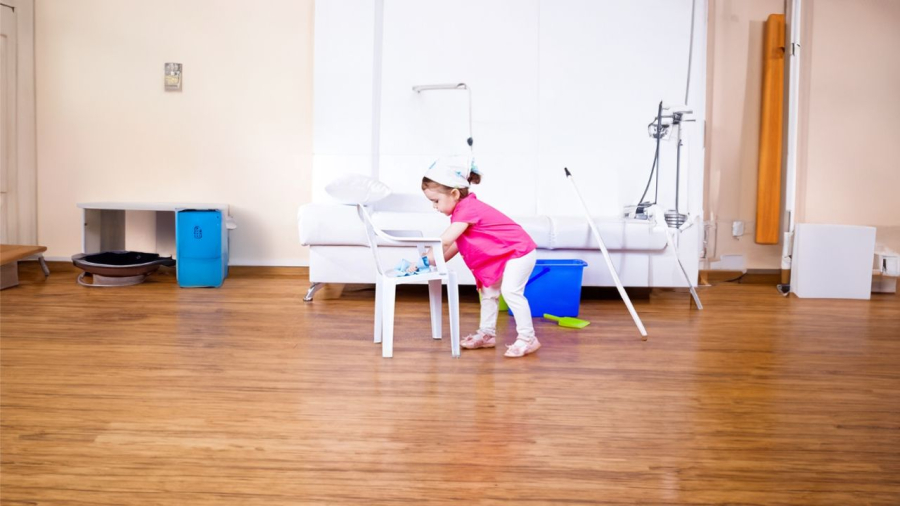Parents play the role as the first teacher for their children, being the first people their child meets as they enter the world. They have a huge impact on how their child will develop and perceive the world around them. Each child is unique, meaning that there is no one-size-fits-all approach to parenting. However, research done on successful children has shown that their parents tend to have several things in common:
Parents learn alongside their children
Children are more likely to be excited about learning and become more intelligent when their parents learn alongside them. Learning helps develop people and provides them with more knowledge and better skills, and children learn when they see their parents participating. Parents are role models and teachers for their children. Parents should take the initiative as learners and start with lessons meant for younger children.

Parents should not overprotect their children
Give children chores, don’t spoil them
Doing chores helps children develop their skills. Therefore, spoiling children is not a good thing. Parents who assign age-appropriate chores to their children teach them to be independent, give them skills for taking care of themselves, and increase their sense of responsibility and love for work. Children who do chores grow up to be hard-working, understand the value of work, work actively, and respect work. This makes it possible for them to leave their parents’ care and still be loved by others. They also tend to be more self-confident and independent. These children grow up to be empathetic and have good relationships with others. This habit also teaches them to easily take on different roles in their future careers. Therefore, parents should not do everything for their children; instead, they should assign responsibilities based on their children’s ages.
Parents teach their children social skills, not just knowledge
Soft skills are now talked about more than IQ. Skills help children learn how to behave and handle situations. The children who are taught skills tend to be self-motivated and understand other people better, which improves their emotional intelligence. When these children grow up and enter the workforce, they are more likely to quickly find a job, advance in their careers, reach higher positions, and be well-liked. People with limited social skills also have a higher chance of running into social problems, such as failing easily or being taken advantage of.
Social and emotional skills are important factors for preparing children for a better future. From a young age, these skills can determine whether a child will enjoy going to school and getting an education or will spend their time playing around and causing trouble.

Children who are taught to do chores increase their skills
Parents teach their children empathy
Showing empathy towards your children and towards others helps young children learn how to interact with others and show empathy for them. Get to know your children. Show empathy when they have problems in order to support them. Care about your children’s emotions, and they will give you a lot of love in return. You will also be able to enter their inner worlds. Children who do this will gain trust, love, and respect from others. Don’t forget to ask your children to pay attention to the emotions of the people around them. If you are at the park, you could point out how people seem to be feeling and ask your child, “How do you think that person is feeling?” Empathy is a key to entering other people’s worlds and solving problems.
Parents tend to have high expectations
Parents’ expectations for their children have a strong impact on their children’s later achievements. However, expectations do not mean putting pressure on children, forcing them, or taking away their freedom. The right expectations and encouragement motivate children and help them develop better. The right expectations are like a prophecy: when you expect something of them, it will happen to them.
Parents care about their children’s interests
Showing interest in your children’s interests helps them see that you respect them, and they will share their problems with you. At the same time, your interest will help you understand your children and learn what their strengths and weaknesses are. This will allow you to help them as best as you can and give them good advice when they have lost their way. Parents should not ask their children to give up their healthy hobbies; they should not force them to only study and work like adults. Everyone needs to play, and that is what helps children grow and become smarter.
Parents do not argue with each other in front of their children
Family conflict and disagreements between parents are awful for young children. These things create wounds in children’s hearts from an early age. When parents love and get along, it makes their children happy and encourages them to develop, love life, and be optimistic. When parents fight, it makes their children feel scared, sad, lost, and regretful.
Parents have a higher level of education
When parents have a higher level of education, they will have a lot of knowledge to teach their children. This will also be something that their children will have to work hard to achieve. Therefore, when parents have a higher level of education, they will encourage their children to work hard to reach their level.
Learning Tips for Parents: 12 Japanese Techniques to Use with Your Children
Discover the 12 principles of teaching children in the traditional Japanese way that parents can learn with Dien May XANH! By instilling these principles when your children are young, you can ensure that they grow up to be obedient, smart and polite, the hallmarks of a successful education in Japan.





































